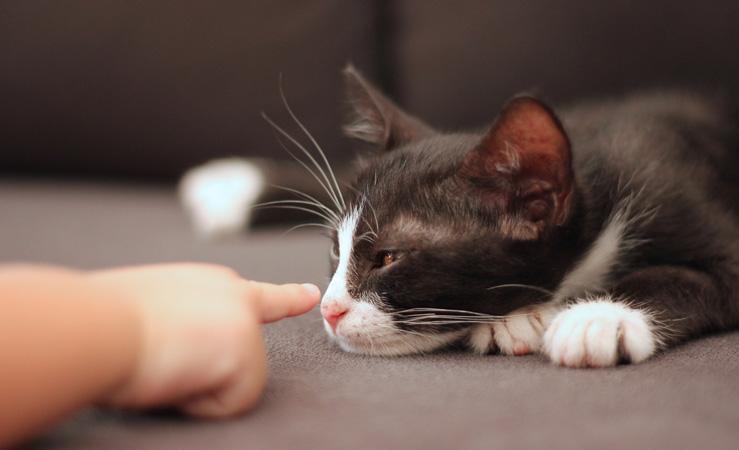More than 40% of Italians live with at least one pet and have stated they wouldn't give them up! But what to do in the case of allergies? Unfortunately, we know all to well that "hypoallergenic" dogs and cats don't exist, so it's important to identify the problem as soon as possible and adopt all possible measures so we can continue to live with our little friends.
Allergens are substances that are innocuous for most people, but that create excessive reactions in the immune systems of allergy sufferers.
In contrast to common belief, the major source of allergens is not animal hair, but the proteins found in saliva and skin residue. The hair picks these up, together with other allergens already present in the environment, such as pollen or dust mites.
These allergens get into the air in the home in a simple manner, when we brush or pet our animals, but also dusting in a traditional manner or using a vacuum cleaner that lacks a suitable filtration system.
Once they become air-borne, particles can stay in the air for months.
Generally, allergy symptoms appear during contact with the animal or a short time after, and continue for a period of time after, given that the allergens remain in the air, on furniture and on clothes.
If you get a runny or congested nose, or watery or scratchy eyes in the presence of cats or dogs, you are probably allergic. In some cases you might also get a rash, suffer respiratory difficulties or asthma.
Your doctor can prescribe an allergy test and a visit to an immunologist for a more precise diagnosis and to determine treatment that will help you to control symptoms, which hopefully will not require a separation from your four legged friend.
In addition to the treatment prescribed by your immunologist, obviously the best way to avoid allergic reactions is to limit contact with allergens:
- keep animals out of bedrooms and away from sofas and armchairs
- remove carpets and rugs that can trap large amounts of allergens
- ask a person without allergies to brush the animal at least once a week, outside of the house
- replace sheets frequently and use hypo-allergenic mattresses and pillows
- do not hug or kiss the animal to avoid direct contact with the eyes and respiratory tract
- only use vacuum cleaners with HEPA filters that remove allergens from surfaces and the air, trapping them inside the filter
- change clothes after prolonged contact with the animal
- use an air purifier with a HEPA filter at least 4 hours per day, it can help to remove allergens from the air. However, it will have no effect on any that are deposited onto surfaces
- before vacuuming, clean all washable surfaces in the home with steam, to kill the allergens
Devices that have HEPA filters and water filters impede allergens from returning to the air during cleaning, but also when the dirt collector is emptied, as the impurities go down the drain with the water.
The British Allergy Foundation has awarded Vaporetto Lecoaspira and Forzaspira Lecologico with its Seal of Approval, as products that effectively eliminate allergens.


